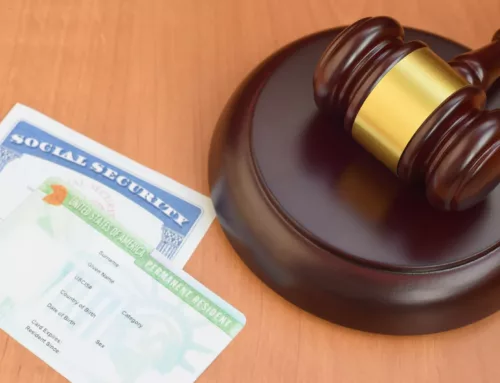Secure the Legal Assistance Required to Prepare Medical Evidence for Your SSD Claim
For individuals facing the challenges of a disabling condition, learning how to gather medical evidence for Social Security disability and present them is crucial in securing the financial assistance they need.
The foundation of any disability case lies in medical evidence. The Social Security Administration (SSA) disability analyst relies on your medical records to assess whether a severe physical or cognitive impairment prevents you from working. The absence of precise, timely, and ample medical evidence backing your Social Security disability claim significantly diminishes the likelihood of securing benefits.
Short Summary
- Understand SSD: Financial assistance for qualifying disabilities impacting work.
- Accepted Records: From accredited physicians and approved providers.
- Recent Records: Up-to-date documentation validates current impairments.
- Navigate Complexities: Understand SSA guidelines, organize evidence effectively.
- Legal Help: Recommended for support and guidance through the process.
The task of gathering medical evidence for your Social Security Disability claim is a crucial step that plays a significant role in determining the success of your application. Building a solid case for the Social Security Administration (SSA) involves compiling thorough and well-documented medical records, along with additional supporting evidence.
What is Social Security Disability (SSD)?
Social Security Disability (SSD), formally known as Social Security Disability Insurance (SSDI), is a federal program in the United States designed to provide financial assistance to individuals who are unable to work due to a qualifying disability. Administered by the Social Security Administration (SSA), SSD provides monthly benefits to eligible individuals who have a severe and long-term disability that prevents them from engaging in substantial gainful activity (SGA).
The program is based on the concept of social insurance, where eligible individuals receive benefits based on their prior work history and contributions to the Social Security system through payroll taxes. To qualify for SSD, applicants must meet specific eligibility criteria, including having a disabling condition that is expected to last for at least 12 months or result in death. The program aims to offer a financial safety net to individuals facing significant limitations in their ability to work due to a qualifying disability.
What Medical Records Does SSA Accept?
Depending on how individuals define “medical treatment,” there’s a chance that the documentation submitted to the Social Security Administration (SSA) might be disregarded and not factored in when assessing disability status. It is crucial to discern the distinction between acceptable and unacceptable medical records:
Medical Records Accepted by SSA:
- Accredited physicians, such as your primary care doctor
- Licensed psychologists
- Licensed optometrists (eye doctors)
- Licensed/Certified speech therapists
- Licensed podiatrists (foot doctors)
- Documents and records from hospitals, health facilities, and professional clinics
Medical Records NOT Accepted by SSA:
- Massage therapists
- Chiropractors
- Acupuncture practitioners
- New age medicine practitioners
It’s important to note that although the SSA will not consider notes and records from chiropractors, any x-rays taken at a chiropractor’s office can be submitted as evidence, as they are regarded as objective.
How Recent Must Medical Records Be?
While there isn’t a specific expiration date linked to your medical records, it’s crucial to bear in mind that the medical documentation submitted to the Social Security Administration (SSA) will be utilized to validate your current physical and/or cognitive impairments. In light of this, it is imperative to ensure that the provided records function as pertinent and logical evidence.
For example, if you are contending with a progressively changing condition, it is advisable to furnish the SSA with recent and timely medical records. This approach is vital because older records may not offer an accurate depiction of your present and evolving state of health.
Conversely, older records may prove beneficial in supporting your claim if your physical and/or cognitive impairment has remained relatively unchanged over an extended period. These older records also contribute to providing a more comprehensive overview of your underlying conditions.
How to Gather Medical Evidence for Social Security Disability?
Securing Social Security Disability (SSD) benefits can be a life-changing lifeline for those whose medical conditions prevent them from working. But navigating the claims process, particularly the crucial task of gathering evidence, can feel overwhelming. This guide aims to break it down into manageable steps, empowering you to build a strong case and increase your chances of approval.
- Understand the Types of Medical Evidence:
- Medical records: These form the backbone of your claim. Gather doctor’s notes, test results, hospital bills, and treatment plans documenting your diagnosis, ongoing care, and functional limitations. Be proactive in requesting records directly from your doctors and healthcare providers.
- Treatment history: Demonstrate your active management of the condition by providing proof of appointments, therapy sessions, medication adherence, and attempted rehabilitation efforts.
- Vocational evidence: If applicable, gather past job descriptions, performance reviews, letters from employers stating your limitations, and documentation of unsuccessful attempts to find new employment. This helps establish your inability to work due to your disability.
- Witness statements: Friends, family, and therapists can provide valuable testimony to your struggles and how your disability impacts your daily life. Their firsthand accounts can add weight to your claim.
- Personal statements: Write a clear and concise narrative describing your limitations, challenges, and the impact of your disability on your ability to work. Your voice matters, so don’t underestimate the power of your own story.
- Familiarize Yourself with the Social Security Administration (SSA) Guidelines:
- The SSA defines disability as the inability to engage in “substantial gainful activity” due to a medically determinable impairment expected to last at least 12 months.
- Understand the specific eligibility criteria and qualifying disabilities associated with each type of SSD benefit you might be applying for (SSDI, SSI, etc.).
- The SSA’s Listing of Impairments, also known as the Blue Book, serves as a comprehensive guide, categorizing various impairments and outlining the necessary evidence for each. Familiarize yourself with the relevant sections for your condition.
- Proactively Gather and Organize Your Evidence:
- Don’t wait for the SSA to request your records. Be proactive and start collecting them from your healthcare providers as soon as you consider filing a claim.
- Maintain a well-organized system for storing your medical records, treatment history, and other supporting documents. This will make it easier to retrieve and submit them when needed.
- Update your records regularly with new test results, doctor’s notes, and any changes in your condition or treatment plan.
- Consider Seeking Legal Help:
The SSD claims process can be complicated and challenging to navigate alone. Consulting with an experienced disability attorney can significantly increase your chances of success. They can help you understand the specific requirements, gather the necessary evidence, and represent you throughout the process.
Remember, gathering strong medical evidence is an ongoing process. Stay organized, be proactive, and don’t hesitate to seek help when needed. By taking these steps, you can build a compelling case that accurately reflects your situation and increases your chances of securing the SSD benefits you deserve.
Get in Touch With Our Law Firm Today!
The process of gathering evidence for your Social Security Disability claim is a crucial undertaking that significantly influences the success of your application. Comprehensive and well-documented medical records, along with other supporting evidence, are essential to presenting a strong case to the Social Security Administration (SSA). By understanding the specific requirements, obtaining relevant medical documentation, and presenting a clear and compelling narrative of your disability, you increase the likelihood of a favorable outcome.
Navigating Social Security Disability claims process can be challenging, and seeking legal guidance is often beneficial. The Rollins Law Firm assists individuals with their Social Security Disability claims. Our experienced team is dedicated to providing personalized support, guiding you through the application process, and ensuring that your claim is thoroughly prepared.
If you have questions about your Social Security Disability claim or would like a free consultation to discuss your case, we encourage you to get in touch with The Rollins Law Firm. Our legal team are here to help you understand your options, address your concerns, and work towards securing the benefits you deserve. Don’t hesitate to take the next step in your disability claim journey – contact The Rollins Law Firm today for the assistance you need.








Connect with Us